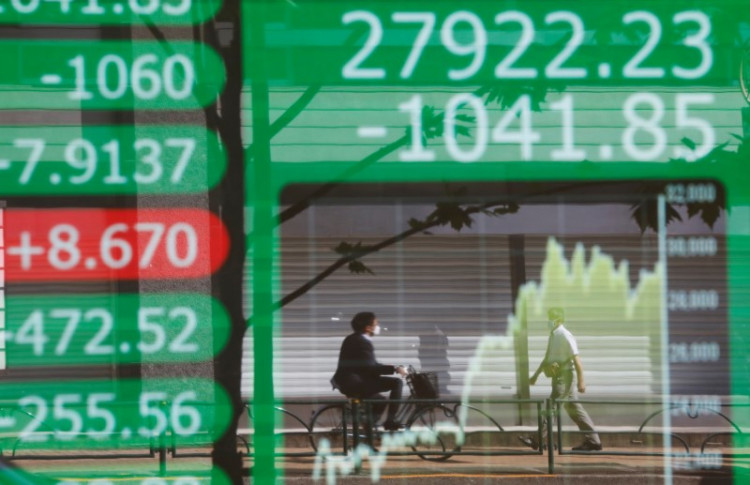Asian stocks moved higher on Monday (Jan. 30), kicking off a week that will almost certainly see interest rates rise in Europe and the U.S. .
The index was up 0.2% early on Monday, while blue-chip stocks in China rose 1.3% following their return from the holidays. With MSCI's broadest index of Asia-Pacific equities outside Japan up 11% so far in January and at a nine-month high, Asia hasn't been doing too badly either as China's prompt reopening improves the economic outlook.
Although this was still half of the pre-pandemic levels, Beijing reported a 74% increase in Lunar New Year travel excursions within China from the previous year.
Taiwan jumped 3.1% while Japan's Nikkei gained 0.3%. S&P 500 and Nasdaq futures both declined by 0.2%, while the EURO STOXX 50 futures fell by 0.1% and the FTSE futures scarcely moved.
Investors anticipate that the Federal Reserve will increase interest rates by 25 basis points on Wednesday, with the Bank of England and the European Central Bank following the next day with half-point increases. Any departure from the expected course would come as a big shock to the market.
The advice on the future policy will be equally crucial, with experts anticipating a hawkish message that more needs to be done to battle inflation. Given that rates are now projected to peak at 5.0 percent in March before falling to 4.5 percent by year's end, there is a lot of pushing to be done.
In spite of the Fed's efforts to tighten financial conditions, 10-year note yields have decreased 31 basis points this month to reach 3.52 percent. Data on US payrolls, the employment cost index, and different ISM surveys will also be used to test that dovish forecast.
Earnings from companies like Apple Inc., Amazon.com, Alphabet Inc., and Meta Platforms, among many others, will have a significant impact on Wall Street's recent climb.
The dollar has lost 1.5% versus a basket of key currencies so far this month as a result of market pricing of early Fed easing. The euro is barely off a nine-month high at US$1.0870, up 1.4% for the month. Despite the Bank of Japan's tenacious defense of its ultra-easy policies, the dollar has even lost 0.7% of its value against the yen, falling to 130.10.






